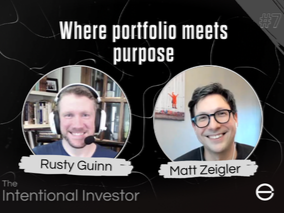In this episode of Breaking News we look at the impact of the presidential debate and the role it played in changing the common knowledge about President Biden’s fitness for office. We explore the concept of common knowledge and illustrate how public perception shifts when everyone knows that everyone else knows something. We discuss the implications for the 2024 election, the role of media in shaping these narratives, and the potential fallout within the Democratic Party. Intertwining serious political analysis with lighter anecdotes, including a story about the Beastie Boys’ early days, we emphasize the importance of community and shared understanding in navigating these turbulent times. Join us as we break down what’s making us tick with Clear Eyes and Full Hearts.
Common knowledge is what everyone knows that everyone knows.
Common knowledge is why the 2024 Biden/Harris campaign has collapsed.
All that remains is the cope.
Recent major media stories that feel to us like they’re part of a larger narrative campaign.
My long vol / tail risk scenarios for 2025:
1) A US election that will be close – very close in the electoral college – where both the winning side and the losing side will claim that the other guy cheated, and the winning side will unleash a tsunami of spending and tax cuts to buy political support.
2) A Phony War between Israel and Iran where both sides are actively planning an existential conflict, temporarily dormant today in the same way that the war between Germany and France was temporarily dormant in 1939 after Hitler invaded Poland.
3) A preventive war to come between China and the US, initiated over access to advanced technology and catalyzed by a technology embargo in the same way that the preventive war between Japan and the US in 1941 was initiated over access to oil and catalyzed by an oil embargo.
4) A new Great Financial Crisis stemming from the overleverage, regulatory arbitrage, self-dealing, balance sheet shenanigans, malinvestment, financialization and profound derivative basis risk that permeates the modern insurance/reinsurance sector.
In this episode, Matt Zeigler talks with Epsilon Theory co-founder Rusty Guinn. Rusty shares his life journey, from growing up in rural Texas to working on Wall Street and eventually co-founding Second Foundation Partners. He discusses his experiences in finance, including roles in investment banking, private equity, and asset management. Rusty reflects on the lessons learned throughout his career, emphasizing the importance of humility, earnestness, and agency. He also talks about his decision to move to a farm in Connecticut, where he now balances his work in finance with homeschooling his children and running an apple orchard. Throughout the conversation, Rusty provides insights into the investment industry, personal growth, and the search for meaningful work and life balance.
Welcome to regulatory stagnation: ETF Industry style.
Innovation is still happening inside the four walls of the established ETF ecosystem. But the structure itself?
Late-Stage.
For compliance and replay purposes, we’re asking participants to register beforehand (name and email address) for our Zoom webinar on Weds, June 26 at 4p ET, where I’ll be walking through my long vol / tail risk scenarios for 2025.
Registration link in post.
In this episode of Breaking News, we examine the current state of the 2024 US presidential election and how it is playing out in the narrative world. We explore the recent Trump trial and its minimal impact on public opinion, as well as growing concerns about President Biden’s age and fitness for office. We then shift to reflections on our recent Epsilon Connect conference about being human in an age of AI, highlighting the importance of maintaining humanity and ethics in our use of technology. We also delve into the troubling state of higher education in America, particularly the exorbitant costs and increasing commercialization of college athletics.
My spidey-sense for major systemic risk has sounded an internal alarm three times in my investment career. Once in Q4 2007 over alt-a and subprime RMBS. Once in Jan/Feb 2020 over Covid. And today.
I’d like to invite all Epsilon Theory Professional subscribers to join me on Wednesday, June 26 at 4pm EST to review the full thesis – the triple systemic risk thesis – and how I’m thinking about trading it.
In this episode of The Intentional Investor, we sit down with Daniel Crosby, a clinical psychologist turned behavioral finance expert and author of the upcoming book “The Soul of Wealth.” We explore Daniel’s fascinating journey from punk rock bassist to leading voice in the world of investing psychology, discussing the importance of setting healthy boundaries, letting life’s phases run their course, and the art of translating complex ideas into actionable insights. Join us as we dive into the power of narrative, the process of learning and unlearning, and the gift of being present in life’s heaviest moments, all while uncovering the parallels between Daniel’s work and our own mission to help people navigate the intersection of investing and life.







